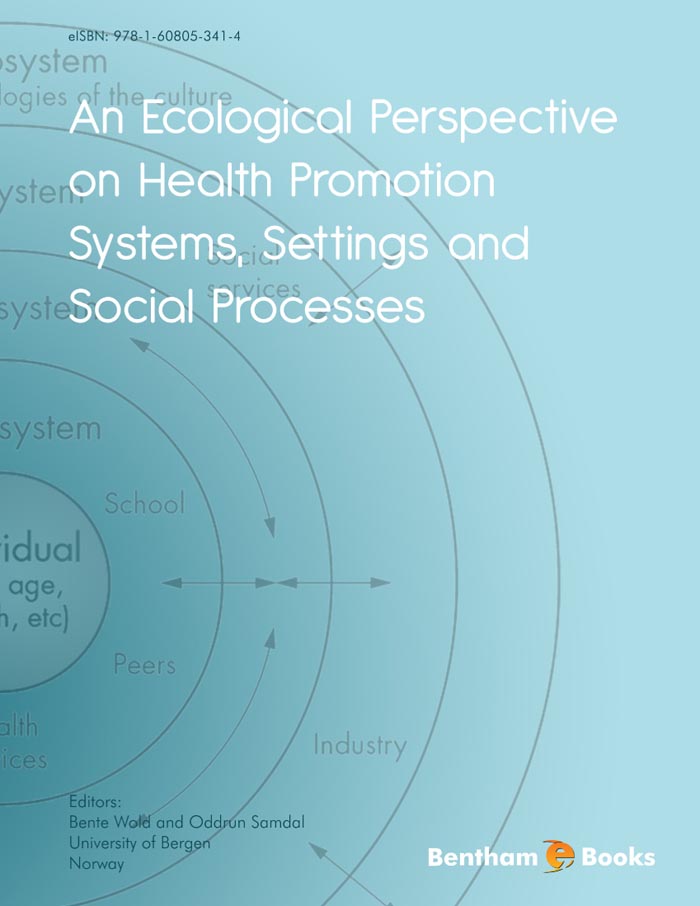Introduction
This e-book adds a new dimension to currently available text in health promotion by applying examples from evaluation studies to explore basic health promotion principles. It thus goes beyond single case study descriptions. The volume intricately blends an ecological approach with social science.
A multiple settings approach is extensively covered by analyzing participants’ perceptions of the family, leisure and school settings. Chapters of this volume also present intervention data aiming at promoting participants’ perceptions and empowerment in the settings. Furthermore, the e-book covers several topic areas central to health promotion, such as life satisfaction, health behaviours (tobacco, physical activity) and health complaints and body image. Another central principle in health promotion, namely development of healthy public policy is covered including descriptions about how health promotion policies are influenced by national and international political developments. This historical perspective adds to the current knowledge of how to establish and develop policies as a basis for all health promotion actions.









